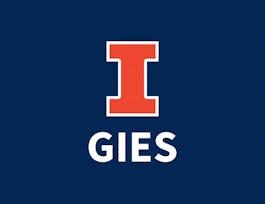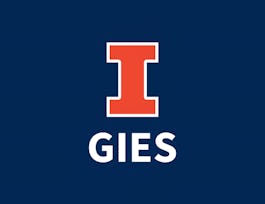In this course, you will explore advanced topics in financial accounting. You will start your journey with accounting for assets with more than one-year life. You will learn in detail how firms account for fixed assets. You will then move to financing of assets and discuss accounting for liabilities. The course will continue with an in-depth exploration of shareholders’ equity. Finally, you will critically evaluate preparation, components, and analysis of cash flows statement.


Financial Accounting: Advanced Topics
This course is part of multiple programs.
Taught in English
Some content may not be translated

Instructor: Oktay Urcan
53,388 already enrolled
Included with 
Course
(1,660 reviews)
97%
Skills you'll gain
Details to know

Add to your LinkedIn profile
25 quizzes
Course
(1,660 reviews)
97%
See how employees at top companies are mastering in-demand skills

Build your subject-matter expertise
- Learn new concepts from industry experts
- Gain a foundational understanding of a subject or tool
- Develop job-relevant skills with hands-on projects
- Earn a shareable career certificate


Earn a career certificate
Add this credential to your LinkedIn profile, resume, or CV
Share it on social media and in your performance review

There are 5 modules in this course
You will become familiar with the course, your classmates, and our learning environment. The orientation will also help you obtain the technical skills required for the course.
What's included
2 videos5 readings1 quiz1 discussion prompt
Long-term assets, assets that can be converted into cash in a time period of more than one year, constitute a large portion of a balance sheet for a lot of public companies. Understanding accounting for long-term assets will help you uncover how these accounts change over time, their valuation, and their usefulness in managerial decision making.
What's included
7 videos5 readings7 quizzes
One of the major sources of financing for many firms is liabilities. Firms routinely finance their operations through various liabilities including accounts payables, bank loans, and bonds. Accounting for liabilities will help you understand how liabilities are created, how they are valued, how they inform about a firm’s liquidity position.
What's included
8 videos4 readings7 quizzes
One of the major sources of financing for many firms is contributions from shareholders. The shareholders’ equity section of a balance sheet shows details of investments of shareholders. Accounting for shareholders’ equity will help you understand the amount of shareholder investment, the number of shares issued in return by the firm for shareholders, the amount of earnings earned by the firm but not distributed to shareholders, and information about the amount of shares repurchased by the firm from the stock market.
What's included
6 videos5 readings6 quizzes
One of the major financial statements is cash flows statement. This statement describes in detail how cash changes for a firm over a certain period. Cash flows statement provides valuable information about liquidity position of a firm, cash consequences of managerial operating and investing decisions, as well as earnings quality of a firm.
What's included
4 videos7 readings4 quizzes1 peer review1 plugin
Instructor

Recommended if you're interested in Finance

University of Illinois at Urbana-Champaign

University of Illinois at Urbana-Champaign

University of Illinois at Urbana-Champaign

University of Illinois at Urbana-Champaign
Get a head start on your degree
This course is part of the following degree programs offered by University of Illinois at Urbana-Champaign. If you are admitted and enroll, your coursework can count toward your degree learning and your progress can transfer with you.
Why people choose Coursera for their career




Learner reviews
Showing 3 of 1660
1,660 reviews
- 5 stars
80.10%
- 4 stars
15.74%
- 3 stars
2.76%
- 2 stars
0.54%
- 1 star
0.84%
New to Finance? Start here.

Open new doors with Coursera Plus
Unlimited access to 7,000+ world-class courses, hands-on projects, and job-ready certificate programs - all included in your subscription
Advance your career with an online degree
Earn a degree from world-class universities - 100% online
Join over 3,400 global companies that choose Coursera for Business
Upskill your employees to excel in the digital economy
Frequently asked questions
Access to lectures and assignments depends on your type of enrollment. If you take a course in audit mode, you will be able to see most course materials for free. To access graded assignments and to earn a Certificate, you will need to purchase the Certificate experience, during or after your audit. If you don't see the audit option:
The course may not offer an audit option. You can try a Free Trial instead, or apply for Financial Aid.
The course may offer 'Full Course, No Certificate' instead. This option lets you see all course materials, submit required assessments, and get a final grade. This also means that you will not be able to purchase a Certificate experience.
When you enroll in the course, you get access to all of the courses in the Specialization, and you earn a certificate when you complete the work. Your electronic Certificate will be added to your Accomplishments page - from there, you can print your Certificate or add it to your LinkedIn profile. If you only want to read and view the course content, you can audit the course for free.
If you subscribed, you get a 7-day free trial during which you can cancel at no penalty. After that, we don’t give refunds, but you can cancel your subscription at any time. See our full refund policy.

